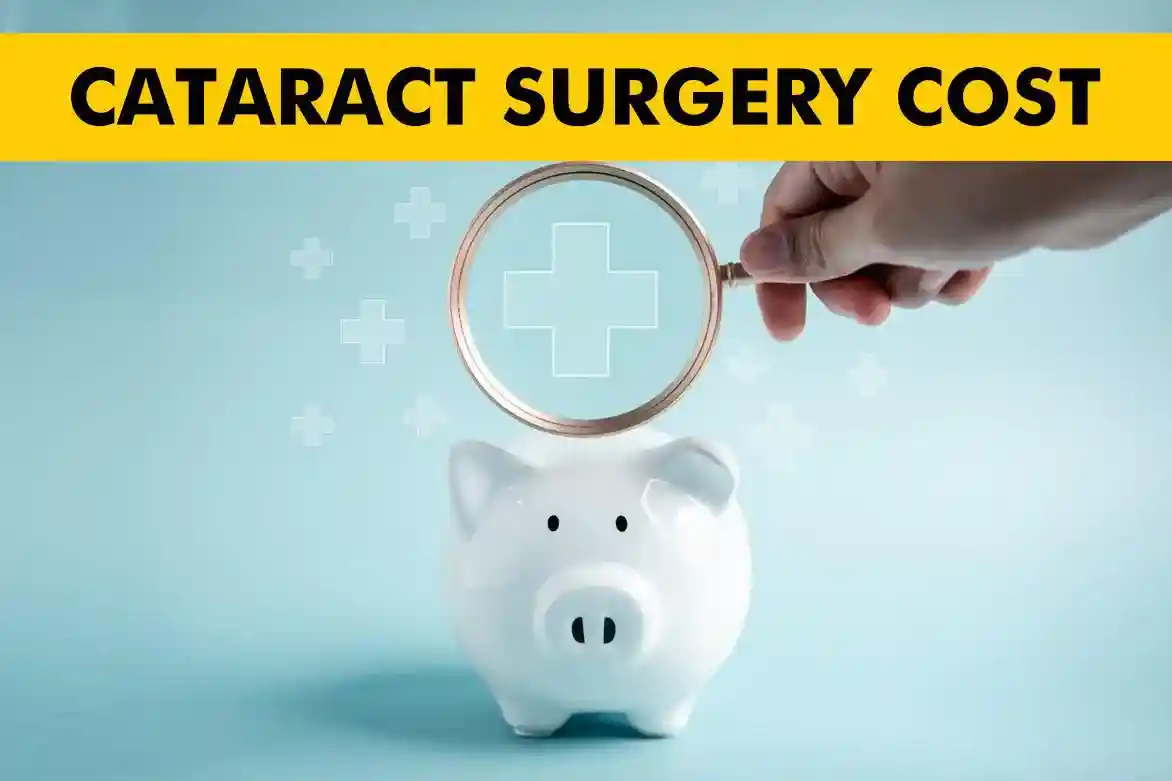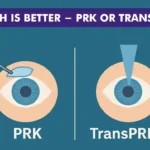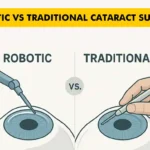Cataracts are one of the most common eye conditions affecting millions of individuals worldwide, particularly as they age. Cataract eye surgery is a highly effective procedure that removes the clouded lens of the eye and replaces it with an artificial lens, restoring clear vision.
One of the most common questions patients have revolves around cataract operation costs and various factors. In this blog, we will discuss the types of cataract eye surgery, costs in India, factors influencing prices, and options for insurance and government assistance.
Why Understand Cataract Surgery Costs?
Cataract surgery is essential for improving vision and enhancing the quality of life. While it is a routine procedure, understanding how much it costs can help you make an informed decision and plan for the expenses effectively.
Factors such as the technology used, lens type, and surgeon’s expertise contribute to the overall cost. Additionally, patients often wonder if cataract surgery is covered by insurance in India and how they can access financial assistance. So, let’s dive deep into all these topics.
Also Read: Types of Cataracts
Average Cost of Cataract Operation in India
Cataract operation cost varies depending on several factors, including the location, hospital, surgeon’s experience, and the technology used. On average:
- The cost of a cataract procedure with a standard monofocal lens ranges between INR 15,000 to INR 40,000 per eye.
- Premium lenses, such as multifocal or toric lenses, can increase the cost from INR 50,000 to INR 1,50,000 per eye.
- Advanced procedures like femto-assisted cataract surgery may cost INR 70,000 to INR 2,00,000.
It’s essential to discuss with your ophthalmologist the type of surgery and lens that best suits your vision requirements and budget.
Types of Cataract Eye Surgery and Their Costs
Phacoemulsification (Phaco)
This is the most common and cost-effective method of cataract surgery. A small incision is made, and ultrasound energy is used to break up and remove the cataract.
- Cost: INR 15,000–45,000
Micro-Incision Cataract Surgery (MICS)
MICS uses a smaller incision than Phaco, enabling quicker healing and reduced discomfort post-surgery.
- Cost: INR 30,000–65,000
Femto-Assisted Cataract Surgery
This advanced, bladeless surgery uses femtosecond laser technology for greater precision. It is ideal for patients seeking better outcomes.
- Cost: INR 70,000–1,25,000
Extracapsular Cataract Extraction (ECCE)
ECCE is used in mature/complicated cataract cases where manual removal of the lens is required.
- Cost: INR 15,000–35,000
Premium Lens Implants
These include multifocal, toric, and extended-depth-of-focus (EDOF) lenses, offering better vision at multiple distances.
- Cost: INR 50,000–1,00,000
Please Note: Costs mentioned above are subject to change and are not definitive.
Factors Affecting Cataract Surgery Costs
- Type of Surgery: Advanced procedures like femto-assisted surgery cost more than conventional methods.
- Lens Type: Standard mono-focal lenses are cheaper, while premium lenses like multifocal or toric increase costs.
- Hospital Infrastructure: Costs may vary based on the reputation, technology, and facilities provided by the hospital.
- Surgeon’s Expertise: Experienced surgeons may charge higher fees for their skills and precision.
- Location: Metropolitan cities may have higher costs compared to smaller towns.
Cost Breakdown of Cataract Surgery
To understand where your expenses go, here is the general cost breakdown of the cataract procedure:
- Surgeon’s Fee: Covers the expertise and skills of the ophthalmologist.
- Hospital Charges: Fees for operating room usage, staff, and equipment.
- Lens Cost: Varies based on the type of IOL (standard or premium).
- Pre-Operative Tests: Vision assessment and other evaluations.
- Post-Operative Care: Follow-up visits, medications, and eye drops.
Planning for Cataract Surgery Expenses
Here are some tips to plan and manage your cataract surgery expenses:
- Compare Costs: Visit multiple hospitals and compare pricing while ensuring quality care.
- Choose the Right Lens: Consult your ophthalmologist to select a lens based on your vision needs and budget.
- Understand Insurance: Check if cataract surgery is covered by insurance in India to reduce out-of-pocket expenses.
- Explore Financing Options: Some hospitals offer EMI or financing plans to make surgery affordable.
- Government Schemes: Research state and central government programs that provide financial assistance for cataract surgery.
Government Assistance and Insurance Coverage
In India, cataract surgery is often covered under government health schemes and private insurance policies.
- Ayushman Bharat Yojana: A national health scheme that covers cataract surgeries for eligible individuals.
- ESIC (Employees’ State Insurance Corporation): Offers coverage for workers and their families.
- Private Health Insurance: Most insurance providers cover cataract surgery costs, including hospital expenses and lens charges.
- State-Specific Programs: Some state governments run cataract surgery programs for economically weaker sections.
It is essential to consult your insurer or hospital about the coverage details and any additional costs.
Explore cataract surgery packages near you. Book an Appointment with Centre For Sight!
Frequently Asked Questions
How much money is required for cataract surgery?
Cataract surgery costs INR 10,000 to 20,000 per eye on average.
How much does cataract surgery cost?
Cataract surgery ranges from INR 8,000 to 15,000 per eye, depending on factors like location and technology used.
What is the cost of lens after cataract surgery?
Intraocular lenses after cataract surgery range from 20,000 to 1,00,000 per eye, depending on the type chosen.
Is cataract surgery 100% safe?
Cataract surgery has a success rate of over 98%, but, like any surgery, carries some risks.
Are there any financing or payment plans offered for cataract surgery?
Many eye care facilities offer financing or payment plans for cataract surgery.
What factors influence the cost of cataract surgery?
Factors influencing cataract surgery costs include surgeon experience, technology, and facility.
Does the type of cataract surgery procedure affect the cost?
The type of cataract surgery procedure, such as Femto laser-assisted, MICS (Micro-Incision Cataract Surgery) or premium lens implants, affects costs.
Are there any additional fees or expenses associated with cataract surgery?
Additional fees for cataract surgery may include pre-op testing, medications, and follow-up visits.
Does insurance cover the cost of cataract surgery?
Insurance typically covers basic cataract surgery, but premiums for advanced options may require out-of-pocket payments.
What is the actual cost of cataract surgery?
The average cost of cataract surgery in India ranges between INR 25,000 and INR 1,20,000, depending on the procedure type, lens choice, and hospital facilities.
Is cataract surgery 100% successful?
Cataract surgery has a very high success rate, with over 95% of patients achieving improved vision. Complications are rare and manageable when performed by experienced surgeons.
Which cataract surgery is best?
The best surgery depends on your condition, lens preference, and budget. Advanced methods like Femto-Assisted Cataract Surgery and premium lenses offer excellent outcomes.





